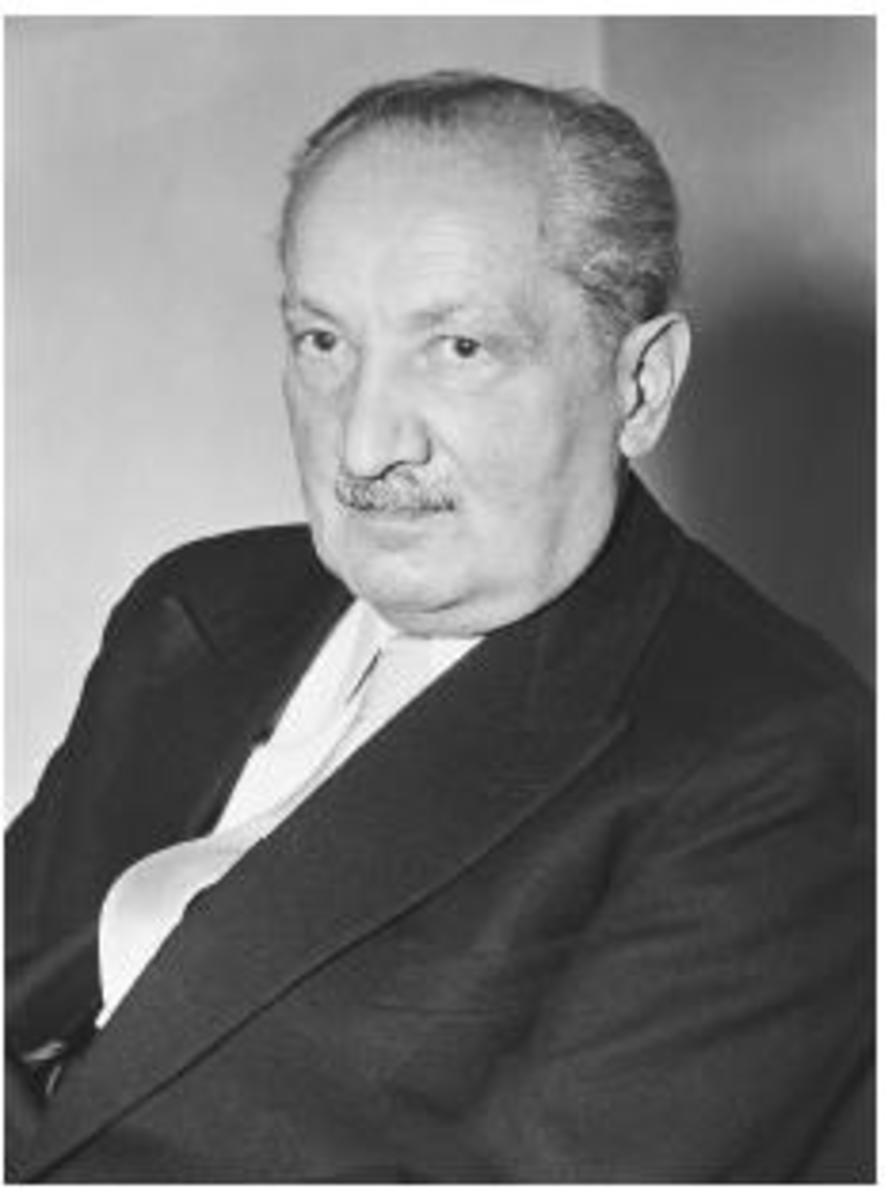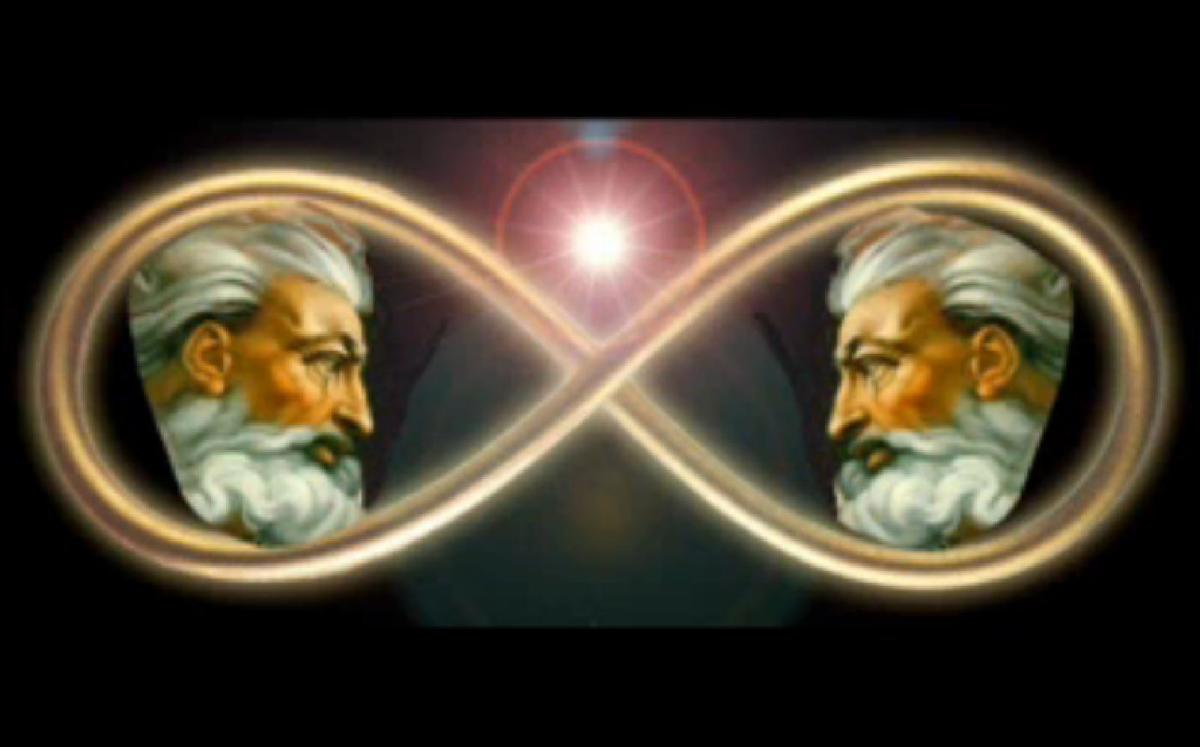Existentialism Defined and Explained
The Reorientation
Many of us have been taught that God created us and that He has a divine purpose for us. But what if you embraced the opposite view that there is no God that gives our life purpose, no divine north star to guide us. This would mean that we are adrift in the universe, and that even though we have others around us, we are really alone. Such is the view of existentialism, a despairing philosophy that maintains that we are without God and therefore are alone and without meaning in the world.
Existentialism is a belief that each person must define his own meaning in life by embracing the absurdity of the universe and living authentically by the exercise of the will. Because of its radical relativism, it's more common to describe what existentialism rejects than what it embraces. Existentialism rejects God, rationality, and any ascribed value and meaning. One of existentialism’s founding fathers, Jean Paul Sartre (1905-1980) gave what is likely the most often quoted definition of existentialism when he said that “Existence precedes essence or being.”
Sartre explains that each man starts with the fact that he exists and then he defines himself through life. His “essence” will be the whole of his life. The implications are that man starts as nothing and must act in the world in order to define himself. Since God does not exist, there is no meaning or purpose ascribed to us. We must act in the world to have a meaningful life. Just existing is valueless. For our existence to have meaning, we must be acting out our will. So, one must "do" in order to “be.”

Us and the Universe
Like any influential idea, existentialism speaks to the matter of humankind and the universe it inhabits. Existentialism rejects the standards of the Enlightenment: man is not merely a thinking self, an aspiration of rationalism; rather, man is a doing self, an active man. And he is a solitary figure; man acts alone in the universe.
For this reason, existentialists like Sartre said that love—at least any type of Christian or romantic love—was impossible because, since life was so solitary, people would only get in your way as you act to create your own existence. Others can only be used in your quest to fulfill your own existence—you could never truly partner with them. The idea that you would sacrifice yourself for them is absurd.
Because the universe is absurd and lacks inherent purpose, it provides unlimited freedom of choice. How should we live in a world that appears to be irrational; how should we live knowing that they are going to die? We should try "to do" rather than "to know." We must choose to act, we must choose how to live. We must take responsibility for our actions. We must act authentically in the face of absurdity (that is, rationally and responsibly) or sink into conformity. Sartre says that, “On a shattered and deserted stage without script, director, or audience, the actor is free to impose his own part.”

The War between Reason & Existence
The old rationalism was preoccupied with how we know things (that’s epistemology); the existentialists were preoccupied with how it is that we exist, hence the word EXISTentialist. The old rationalism, like Descartes, said, “I think, therefore, I am” with the emphasis on our thinking, on what is going on inside of us. The rationalists were preoccupied with knowing how it is that we know the world. How do we know that God exists? Now, they assumed there was a God that could be rationally known and they assumed a world rational enough that we could learn true things about it. But the existentialists said that the universe is absurd and you and I are thrust into it. Therefore, we can’t just be focused on our thinking; we must act in the world. We must not just think, but do. There is no objective reality, no life to conform to (like the will of God). No external mandate. You can either authenticate your own life by creating your own existence or you can live with the dread (the angst) that there is no validation outside you. Commitment to a goal or task becomes the basis of existence and meaning.
The Practitioner--Ernest Hemingway
The existential life can only be affirmed in an ephemeral way, it can't be authentically lived out. However, some lost souls have given existentialism the "ole' college try" and one of those souls was Ernest Hemingway
The Lost Generation--For many in the West, WWI shattered optimistic hopes for mankind’s future. This was the time of the Lost Generation (that’s what Gertrude Stein called them)—those that appeared to be adrift from ideals (Hemingway used the expression in his novel The Sun Also Rises). Other literary waifs that fell into this group were T.S. Eliot and F. Scott Fitzgerald.
Code Hero—Hemingway's self-styled existentialism about the human condition can be seen in the persona and ideal of the reflected in the Code Hero. A man that adheres to the “Code Hero” is a man that lives by a code, a set of ideals: honor, courage, and resolution. Hemingway’s hero is always a man, someone who lives a hard life of aggressive activity. He hunts, he (like in the case of Hemingway) loves bull fights. He lives hard. He’s a heavy drinker, moves from one affair to the other.
The Code Hero is a man that does not talk about himself—he does not talk about what he believes in—he’s a man of action, not a man of contemplation. So he shuns saying things like “I believe this” or “I am like this.” His beliefs are known through his actions. Talking about anything, in fact, diminishes it.
The Code Hero embraces the inevitability of death. He confronts his mortality and accepts it. Since there is no life or reward hereafter, man must get his reward now. So the Hero indulges himself. Furthermore, in confronting his morality, he must do so by exhibiting “grace under pressure.” So, he might do something daring early in life to demonstrate (if to nobody else, himself) that he is worthy.
In the end, Hemingway does not leave his death to fate; he acts to kill himself rather than to be acted upon by nature. In speaking of existentialist thought, Charles W. Colson in his book God and Government provides an analogy of a wine glass being emptied and then smashed against a mantle. The “filling” of the glass is a measure of man’s life. The smashing of the glass is an act of control that one exercises to express one’s autonomy—that is, you die by an act of your will and not by fate or at the hands of others.

For All of Our Efforts....
Hemingway represents the kind of man that tries to live by an existentialist philosophy right up to the taking of his life. For Hemingway, we are told that he is a man that lives by his own rules, even to the ending of his life. Is this a livable philosophy? Can we steer our skiff by it? In conclusion, I draw these observations:
First, existentialism is the kind of philosophy you settle for because you're out of options. Skepticism came out of the Age of Reason, but lead to despair and existentialism is one of it's most despairing stepchildren. These philosophies (existentialism, nihilism, postmodernism) are the philosophies that you settle for. This is why so many unbelievers try to deny that they despair, but it is hard to avoid it when the wisest among them say that even if we feel optimistic or happy, we have no reason to be so.
Second, existentialism is just another form of relativism. Existentialism is a variation on a theme, the theme of relativism. Regardless of the source of the intellectual tradition, existentialism--like nihilism, situational ethics, neo-orthodoxy, values clarification, or postmodernism--espouse a departure from God and the attempt to make ourselves a starting and ending point of existence .
But, why should anyone feel compelled to accept this view of existence? It cannot make any claims to truth and its proponents do not believe in any ultimate truth so it can’t impose on us any obligation to embrace it. Existentialism would have us look at a moving object and steer our lives by it, in essence to “Tie a lamp to the masthead and steer by that” when “the stars are quenched in heaven." [1]
Existentialism is just another form of slavery. Given existentialism, you must act authentically to have a meaningful life. So, you must work. You must exert. The meaningfulness of your life is measured by your activity so you must dare greatly, exert greatly. But the “have to” is slavery. In the end, for all your exertion, you won’t get paid. You say, “Oh, but I will get fame, recognition, status.” But these things don’t matter if there is no meaning beyond you. For all of your work, dreams, planning, and exertions, they will amount to nothing in the final accounting. For all the work that you did in this life, you won't get paid. And given the dread of approaching non-existence, existentialism can provide neither truth nor comfort.
If you value reason, existentialism offers no reason to accept it. If you value truth, existentialism can offer you none. And since it can offer neither reason nor truth, and since we know that we can reason and that there are truth claims we can affirm, we should reject existentialism as a philosophy for being, action, and existence.
Notes
[1] E.L. Allen, The Self and Its Hazards: A Guide to the Thought of Karl Jaspers (London: Hodder and Stoughton , 1553), 7. Quoted in Charles W. Colson, God and Government (Grand Rapids: Zondervan, 2007), 61.
© 2019 William R Bowen Jr








